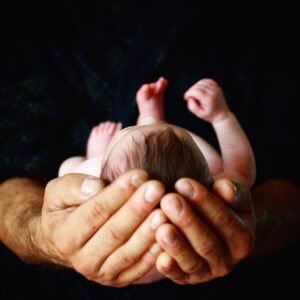 The Northern Bishops, speaking today at the Summer General Meeting of the Irish Bishops’ Conference in Maynooth, voiced their grave concern at the decision in recent days of the Secretary of State for Northern Ireland, Chris Heaton Harris MP, to lay regulations in the Westminster Parliament making it compulsory on all second level schools in Northern Ireland to teach children about access to abortion and prevention of early pregnancy.
The Northern Bishops, speaking today at the Summer General Meeting of the Irish Bishops’ Conference in Maynooth, voiced their grave concern at the decision in recent days of the Secretary of State for Northern Ireland, Chris Heaton Harris MP, to lay regulations in the Westminster Parliament making it compulsory on all second level schools in Northern Ireland to teach children about access to abortion and prevention of early pregnancy.
Bishops said, “Having already imposed some of the most radical abortion laws in the world on the people of Northern Ireland, without their consent, the Secretary of State now seems determined to impose an ideologically biased view of abortion on all schools, irrespective of parental rights or school ethos. This is radical legislation the British Government doesn’t even impose on schools in Britain, where the right of parents to be involved in decisions about such ethical and pastoral issues is fully respected. There is no such thing as a neutral view on abortion. There is no such thing as a value-free or ethically neutral approach to the question of when life begins and when we have a duty to protect and care for all human life. These are matters subject to sincerely held differences of opinion across the world. It is not for a Government to impose one ideological approach on children, parents or on our schools, over others. This is why the right of parents to an education for their children that is an accordance with their ethical, religious and philosophical convictions, is an internationally recognised human right. It prevents Governments from the kind of over-reach in relation to the rights and freedom of parents that this legislation represents. We call on the Secretary of State for Northern Ireland to respect the internationally recognised rights of parents, and the principles of consultation and devolution in the Good Friday Agreement, and to withdraw this legislation, leaving it to a devolved Assembly to decide, in consultation with parents and educational stakeholders.”
Bishops continued, “Like the recent so-called investigation of the Northern Ireland Human Rights Commission into RSE in schools, the Secretary of State is also indulging in a tired and frankly, offensive caricature of what our outstanding teachers are actually doing in our schools in this area. Today our Catholic Schools Trustees Service will be writing to those who carried out the recent NIHRC “Investigation” to express the Trustees’ serous concerns about the accuracy and fairness of the Report. Neither party took the trouble to engage with teachers in the classroom. At best, a limited paper-based exercise was undertaken which failed to recognise that in the reality of classroom teaching, teachers and schools are endeavouring to provide professional, ethically balanced, scientifically honest, and pastorally responsible age-appropriate Relationships and Sexuality formation in our schools. It is an education rooted in the building up of relationships of trust and openness in which every issue can be maturely, openly and honestly discussed. That is the approach of Catholic, and indeed of other schools where highly sensitive matters like abortion are discussed fully and openly and which enables our young people to be confident and compassionate with regard to all of the issues concerned. The Secretary of State, and the Northern Ireland Human Rights Commission, need to move away from their tendency to ideological colonisation in this area, and trust parents, teachers, young people and local politicians in Northern Ireland to balance the rights and responsibilities involved.”
Bishops concluded, “We call on all politicians in Northern Ireland, and those MPs in Westminster with a genuine commitment to the principles of pluralism, democracy and the right to devolved decisions in the Good Friday Agreement, to oppose the regulations in Westminster. We also encourage parents and teachers in schools in Northern Ireland to challenge the unjust presentation by the Secretary of State, and the NI Human Rights Commission, of the outstanding, ethically responsible and scientifically balanced work they are doing in our schools in regard to Relationships and Sexuality Education. Finally, we call on young people themselves to challenge the view that they are passive, uninformed and unable to engage confidently and maturely in open debate about all the issues raised in this important part of the school curriculum.”
+ Eamon Martin, Archbishop of Armagh, Apostolic Administrator of Dromore and Primate of All Ireland;
+ Donal McKeown, Bishop of Derry and Apostolic Administrator of Down and Connor;
+ Larry Duffy, Bishop of Clogher;
+ Michael Router, Auxiliary Bishop of the Archdiocese of Armagh.
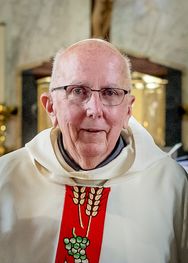



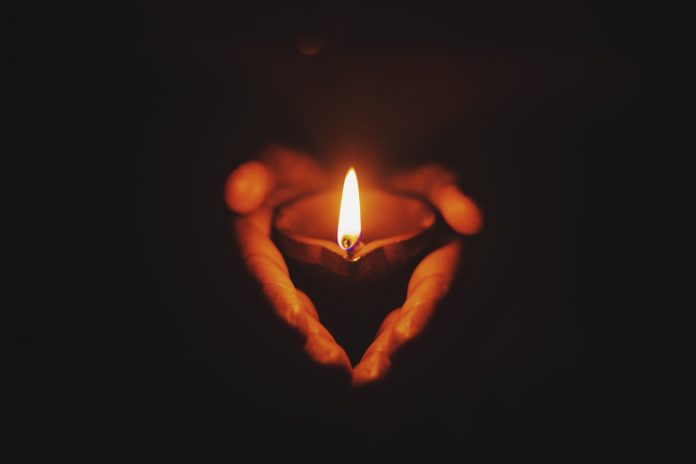


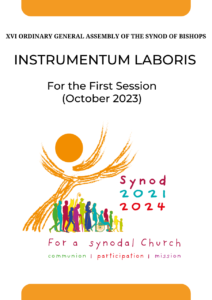 I welcome the publication yesterday, June 20th, of the Instrumentum Laboris (IL), for the first session of the Synod in October with the theme “For a Synodal Church: Communion, Participation and Mission.
I welcome the publication yesterday, June 20th, of the Instrumentum Laboris (IL), for the first session of the Synod in October with the theme “For a Synodal Church: Communion, Participation and Mission.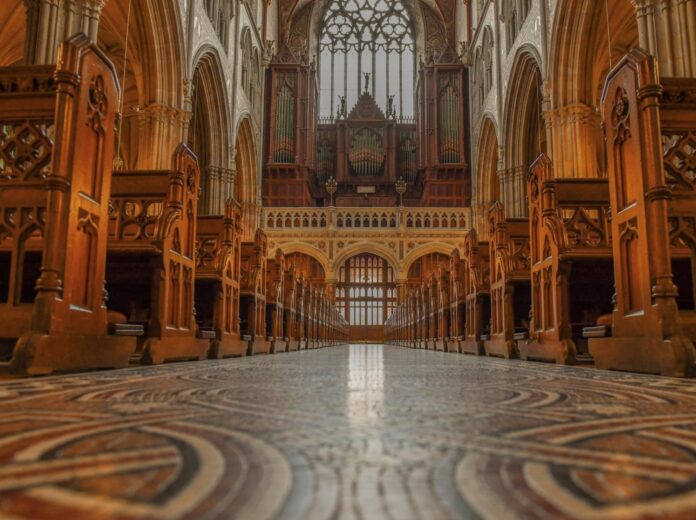

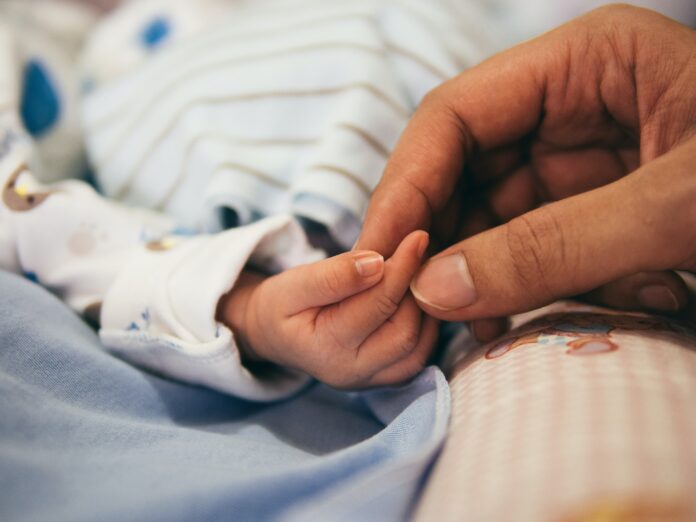
 The Northern Bishops, speaking today at the Summer General Meeting of the Irish Bishops’ Conference in Maynooth, voiced their grave concern at the decision in recent days of the Secretary of State for Northern Ireland, Chris Heaton Harris MP, to lay regulations in the Westminster Parliament making it compulsory on all second level schools in Northern Ireland to teach children about access to abortion and prevention of early pregnancy.
The Northern Bishops, speaking today at the Summer General Meeting of the Irish Bishops’ Conference in Maynooth, voiced their grave concern at the decision in recent days of the Secretary of State for Northern Ireland, Chris Heaton Harris MP, to lay regulations in the Westminster Parliament making it compulsory on all second level schools in Northern Ireland to teach children about access to abortion and prevention of early pregnancy.
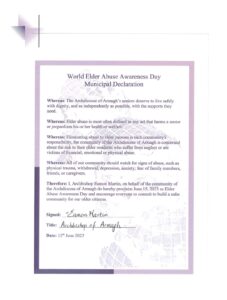
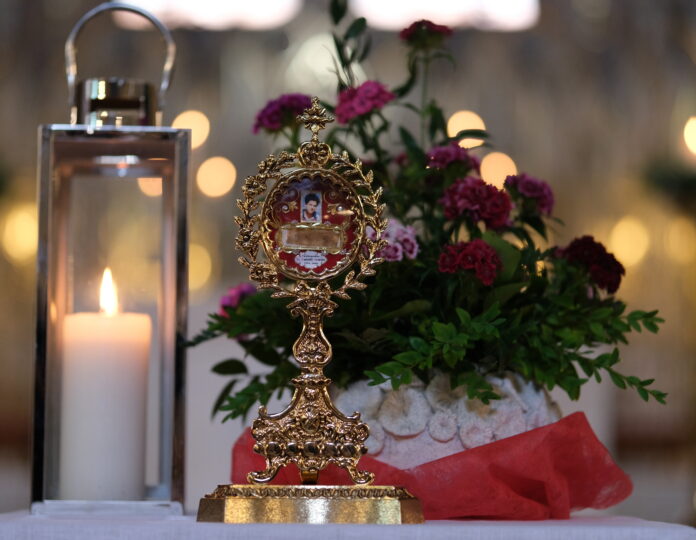
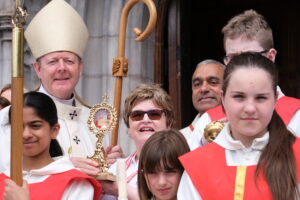
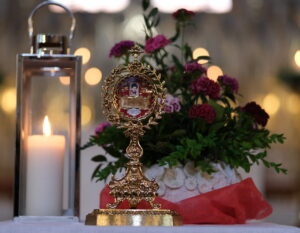
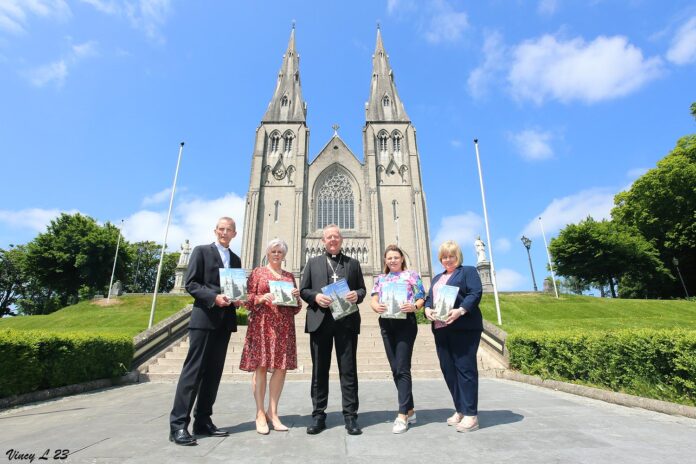
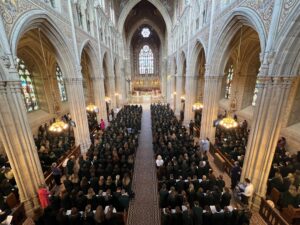 The Archdiocese of Armagh has launched a special Fundraising Campaign to support the ongoing maintenance and enhancement of the magnificent St Patrick’s Cathedral, Armagh. This is an important year in the history of the Cathedral as it marks 150 years since the original dedication by Archbishop McGettigan on 24th August 1873.
The Archdiocese of Armagh has launched a special Fundraising Campaign to support the ongoing maintenance and enhancement of the magnificent St Patrick’s Cathedral, Armagh. This is an important year in the history of the Cathedral as it marks 150 years since the original dedication by Archbishop McGettigan on 24th August 1873.
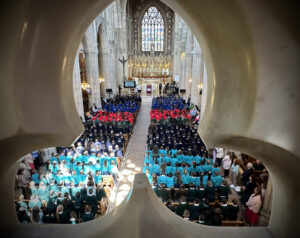 “The one who sings prays twice”
“The one who sings prays twice”



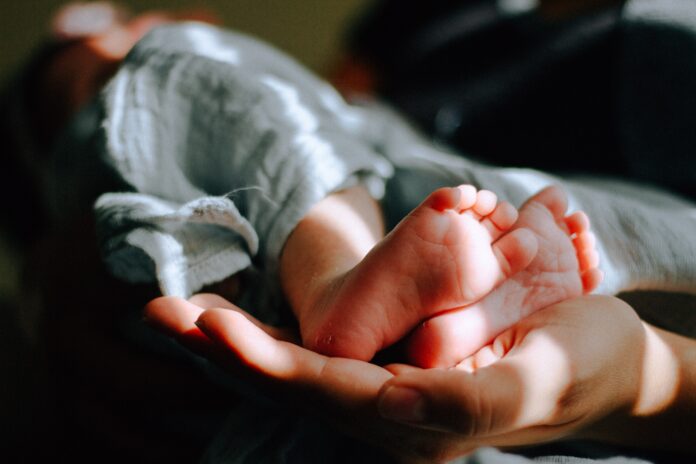
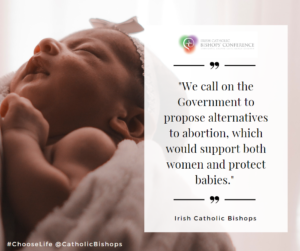 At Masses across Ireland this weekend, dioceses will be remembering in prayer in a special way unborn children five years on from the May 2018 referendum which removed the constitutional guarantee of the equal right to life of unborn children and their mothers.
At Masses across Ireland this weekend, dioceses will be remembering in prayer in a special way unborn children five years on from the May 2018 referendum which removed the constitutional guarantee of the equal right to life of unborn children and their mothers.